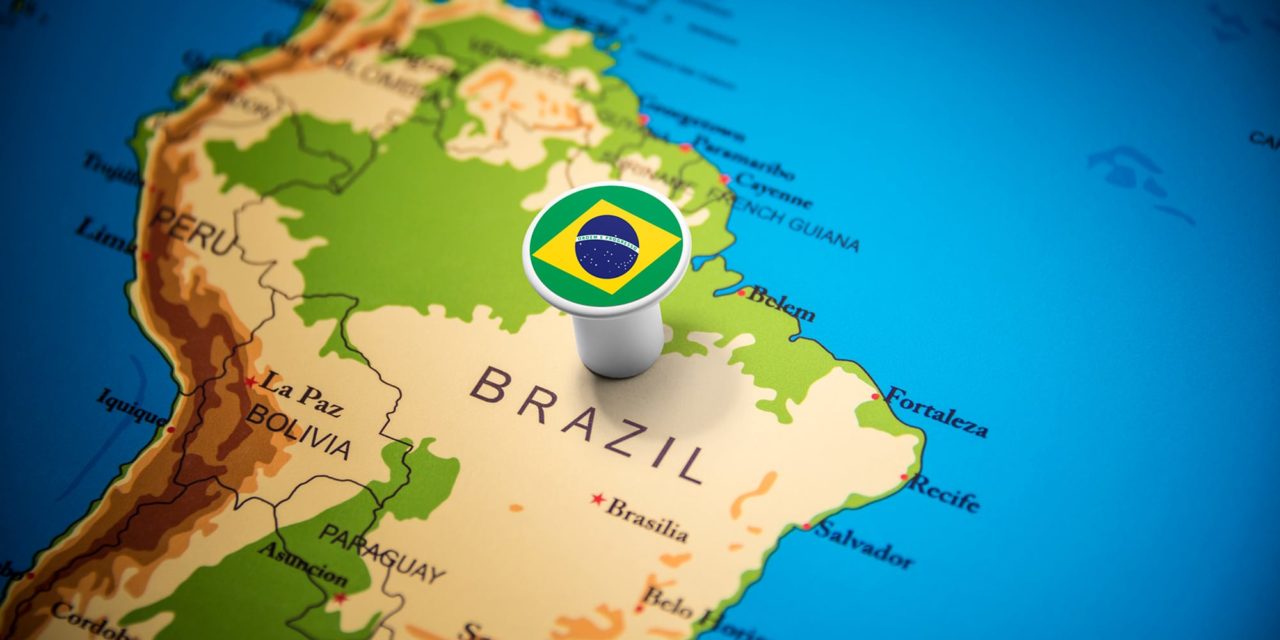RIO DE JANEIRO, BRAZIL – Brazil is about to leave the group of the ten largest economies in the world.
Now having the ninth-highest Gross Domestic Product (GDP) in US dollars, the country should drop to 12th place at the end of this year, according to data from the International Monetary Fund (IMF) compiled by researchers Cláudio Considera and Marcel Balassiano, of the Brazilian Institute of Economics (Ibre-FGV).
Brazil was ranked 7th in 2011, when the value of its GDP in dollars was behind only those of the United States, China, Japan, Germany, France, and the United Kingdom. That year, some consulting firms even projected that the Brazilian economy would outperform the British economy, which was still heavily impacted by the 2008 global financial crisis.

With a low growth rate, far below its BRIC peers in the years to follow, Brazil was unable to maintain its ranking. The coronavirus pandemic was the last straw on a scenario already quite damaged.
The world’s largest economies
| 2019 | 2020 | |||
|---|---|---|---|---|
| Position | Countries | GDP (trillion US$) | Countries | GDP (trillion US$) |
| 1 | USA | 21.4 | USA | 20.8 |
| 2 | China | 14.7 | China | 15.2 |
| 3 | Japan | 5.1 | Japan | 4.9 |
| 4 | Germany | 3.9 | Germany | 3.8 |
| 5 | India | 2.9 | United Kingdom | 2.6 |
| 6 | United Kingdom | 2.8 | India | 2.6 |
| 7 | France | 2.7 | France | 2.6 |
| 8 | Italy | 2.0 | Italy | 1.8 |
| 9 | Brazil | 1.8 | Canada | 1.6 |
| 10 | South Korea | 1.6 | ||
| 11 | Russia | 1.5 | ||
| 12 | Brazil | 1.4 |
“The main factor that leads Brazil to fall three positions in the ranking is the exchange rate depreciation which, first and foremost, is the result of internal problems, such as the troubled political moment and the uncertainties regarding our fiscal future, which have made the country risk increase,” says Balassiano.
The Real has depreciated nearly 40 percent in relation to the dollar since late last year, emphasizes the economist. For 2020, the projections compiled by the Central Bank’s Bulletin Focus, point to a loss just over 30 percent.
Nevertheless, the situation could be worse, given that the worst projections regarding the economic tumble this year, made at the beginning of the coronavirus crisis, did not materialize, thanks to the emergency aid of R$600 paid to 65 million Brazilians. The IMF expected a nine percent GDP decline for the country, which should shrink by nearly five percent, according to market economists’ projections.
Purchasing power
In addition to considering the value of GDP in dollars for countries in the ranking, researchers also considered the purchasing power parity (PPP) criterion, which estimates GDP based on the real cost of prices and services, as if all countries had a common currency, rather than exchange rates that are volatile and lend a disproportionate weight to those with strong currencies.
According to this criterion, Brazil would move from its 10th position in 2019 to 8th in 2020, topping the United Kingdom and France, which are expected to show sharper declines in GDP than Brazil.
“The exchange depreciation seen this year was very large, which impacts the country’s position more than the GDP drop, although it is one of the countries that will shrink the most in 2020,” says Claudio Considera.
The economist points out that, although the exchange rate depreciation is not considered by this criterion, one should not dismiss the fact that the sharp depreciation is a consequence of the poor performance of the economy, driven by distrust and uncertainties regarding the future. “The exchange rate depreciation is a consequence of these problems.”
Source: Exame

